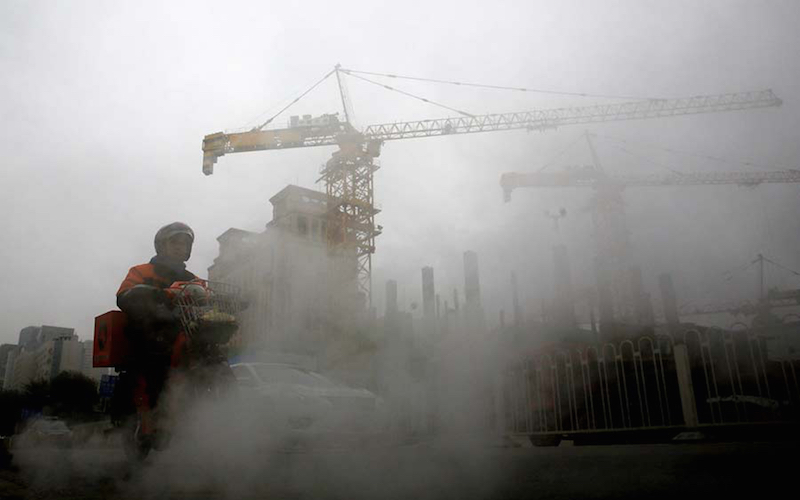
Beijing Issues First Ever “Red Alert” for Poor Air Quality
Major population growth and economic overdevelopment have caused Chinese officials to implement a heavy campaign to curb environmental pollution and lower CO2 emissions so that poor air quality can be improved.
In an effort to achieve better air quality, the city of Beijing, with support of the Chinese government, issued its first ever “red alert” just before 7:30 p.m. local time on Monday, December 7, 2015, for extreme pollution levels, China’s state-run Xinhua news agency reported. The alert will last from 7:00 a.m. local time on Tuesday, December 8, 2015, to 12:00 p.m. on Thursday, December 10, 2015.
As previously discussed, the city government’s issuance has stopped outdoor construction activity, limited the number of vehicles allowed to commute based on their license plate number – even or odd, and even had schools close all due to poor air quality.
What remains unclear is whether Beijing city authorities will properly enforce the new policy and how it will financially impact families relying on income from the mandatory three-day regulation. How will families adapt to earning less? Will companies offer remote work capabilities to address this issue? The coming days will have the answer to some of these questions.
At the Climate Change summit in Paris, France, last week, Chinese President Xi Jinping reiterated his country’s plan to improve air quality by lowering CO2 emissions by erecting green structures and offering low-emission alternative transportation. Xi stated:
China will work hard to implement the vision of innovative, coordinated, green, open and inclusive development. China will, on the basis of technological and institutional innovation, adopt new policy measures to improve industrial mix, build low-carbon energy system, develop green building and low-carbon transportation, and build a nation-wide carbon emission trading market so as to foster a new pattern of modernization featuring harmony between man and nature. In its Intended Nationally Determined Contributions, China pledges to peak CO2 emissions by around 2030 and strive to achieve it as soon as possible, and by 2030, reduce CO2 emissions per unit of GDP by 60-65% over the 2005 level, raise the share of non-fossil fuels in primary energy consumption to about 20%, and increase forest stock by around 4.5 billion cubic meters over 2005.
While the issuance of an alert might help curb Beijing’s pollution in the very near term, it will have no true impact on air quality until the Chinese government, private sector firms, and its citizens work together to produce the environmental and air quality change to which Xi spoke.
